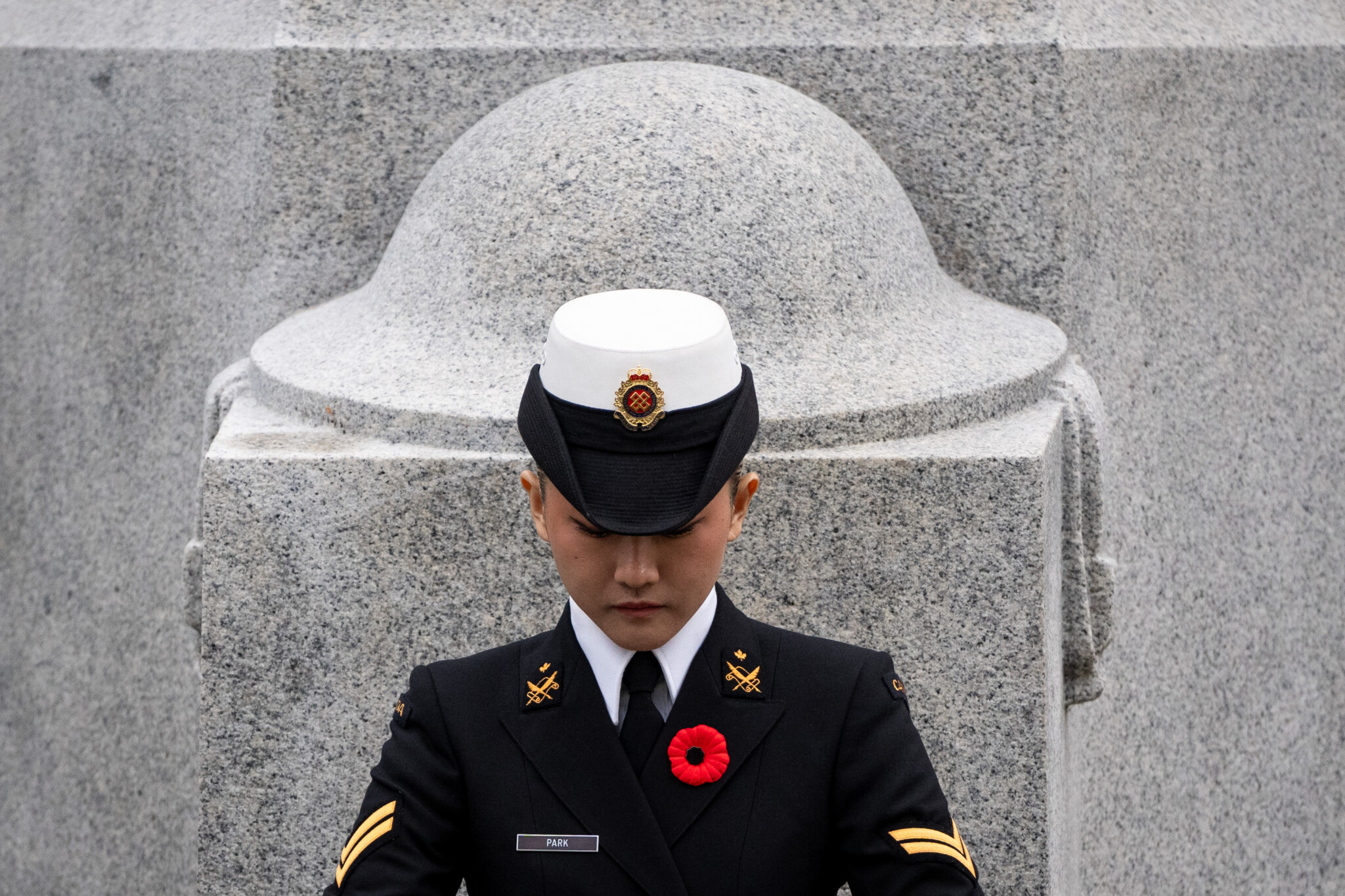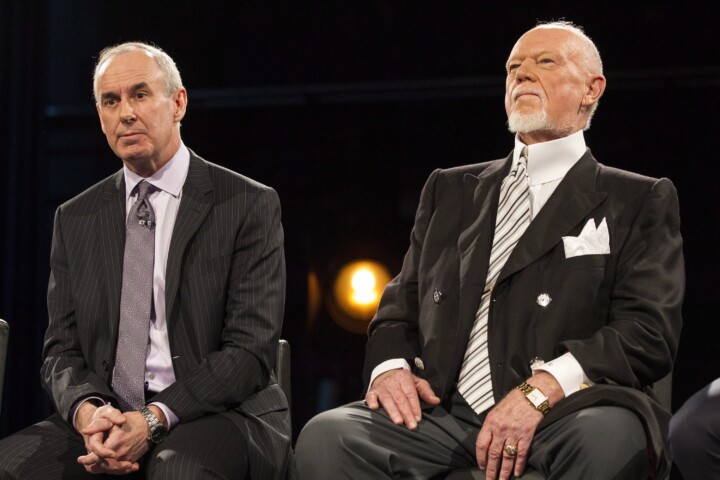November, the month marking remembrance in our society, is coming to a close. Poppies were sold by veterans at subway stations and in stores. People wore them on the left side of their coats (and occasionally lost them). Many thousands across the country attended Remembrance Day ceremonies in person or online and observed two minutes of silence at the 11th hour, on the 11th day, of the 11th month.
But after all is said and done, do the lessons of Remembrance Day remain? Do we just go back to our daily lives and forget about it until the following year, even as the social landscape evolves around us?
While I attended the Future of Commemoration conference hosted by the Embassy of the Kingdom of the Netherlands earlier this month, these questions were top of mind. After we commemorated the 80th anniversary of the liberation of the Netherlands by the Canadian military at the end of the Second World War, there were discussions about the commemoration and its challenges and future.
A decline in Canada’s history and veteran population
The present is not a stagnant state. It is in a continuum with the past and the future. As such, our commemoration of history through various cultural symbols and rituals gives us the opportunity to pause and not only reflect on the past but assess the future.
Canada is not an exception to the rule. All of us in one way or another benefitted and are impacted by the aftermath of these conflicts. The Canada we know today—and the ideals of democracy, freedom, and equality we strive for—were shaped by them.
But Canadian history is fading. According to an Ipsos/Historica Canada poll, only about one in five (18 percent) Canadians scored a passing grade on a Canadian history quiz they conducted, while the remaining vast majority (82 percent) failed. This was most pronounced among younger Canadians (88 percent) compared to Canadians aged 55 and over (73 percent). Further, the majority of respondents (78 percent) were born in Canada.
Moreover, demographics in the Canadian Armed Forces (CAF) are changing. According to 2021 statistics, there are 97,625 Canadians serving in the CAF. There are 461,240 veterans in Canada, accounting for 1.5 percent of the population aged 17 and over. This is much smaller compared to the 10 percent of the Canadian population who served in the Second World War, amounting to over a million Canadians.
It is becoming increasingly common for Canadians to never meet someone who has served or is currently serving as the number of veterans from the Second World War and the Korean War dwindles. Memories are being lost to time.
The issue of relevance and a sense of loss
This is perhaps understandable. From dealing with the pandemic and its aftermath to growing economic insecurity to rising distrust in our institutions, our present problems seem all-consuming. Why commemorate the past when there are so many struggles in front of us today?
Not only is there a lost promised future for the youth, but Canadians as a whole are struggling to find national pride.
This sentiment only gets reinforced given the recent memory of Canada’s 13-year war in Afghanistan. With the Taliban’s Afghanistan takeover in 2021, unlike the wars and conflicts Canada participated in during the 20th century, Canada was never unequivocally victorious. Commemoration is hard to do, especially when veterans feel like they failed.
Overall, is it any wonder Canadians want to move on from the past when the main narratives revolve around its darkest chapters? The rose-coloured glasses have been shattered and polarized culture-war debates are a growing share of the national conversation.
Canadian history itself is an open battlefield now, with skirmishes fought over every inch of territory, from who gets to tell our nation’s story to which chapters should be foregrounded. Whether it’s rants about nobody wearing poppies anymore to the controversy of a Palestinian song being played during a school ceremony, these debates have become all the more acute on the day that was supposed to be about remembrance.
As with everything, though, the real answer is that there is no satisfying one-size-fits-all narrative. Canada, as a real and complicated country, has a real and complicated story. At the same time as Canada’s residential school system was well underway, we also, as I was reminded at the conference, liberated the Netherlands from tyranny.
A few silver linings
In light of this, while Remembrance Day and the future of commemoration in this country may appear bleak, not all is lost. According to a recent Leger/National Post poll, six in 10 Canadians (58 percent) said they had planned to wear a poppy this year. Almost half (45 percent) had said they would observe two minutes of silence. Only 17 percent of Canadians said they would not participate, compared to the majority of Canadians who said that they would. Tens of millions of Canadians still wear the poppy all across the country on Remembrance Day. Despite what it may seem online, Remembrance Day and the poppy are still going strong.
Education is one way to respond to the challenges of declined history and relevance. Present-day challenges are what make commemoration even more relevant than ever. The challenges that we are currently facing similarly occurred in the past. As Mattias Vanderley, president of YATA-NATO, quoted to me from Mark Twain, “[A]lthough history doesn’t repeat itself, it often rhymes.” Nothing exists in a vacuum and understanding the roots of past conflicts and challenges is integral to understanding present-day challenges.
His organisation, and so many others, are doing the work to reach youth. They have been creating events, providing opportunities for their young members to attend conferences, and arranging professional meet-ups with individuals in the defence, security, and global affairs fields. In fact, I was able to attend this particular conference because of YATA-NATO.
The Royal Canadian Legion’s Poppy and Remembrance division is also facing the challenges impacting commemoration head-on. They have been implementing technology in their poppy campaigns, from being able to scan poppies to learn the stories of fallen soldiers to VISA tap-enabled poppy donation boxes as an option for people who want to get a poppy but don’t have cash.
We live in a far more rapid world where, unfortunately, not everyone has the opportunity to attend Remembrance Day ceremonies and may not be able to observe two minutes of silence. To address this, the Legion has been collaborating with advertisers to have an advertising blackout during the two minutes of silence.
In recent years, Remembrance Day has been becoming more inclusive. This year, Toronto honoured the No. 2 Construction Battalion, Canada’s only all-black unit in the First World War. While there has been predictable criticism of the occasion becoming too “woke,” it is important to recognize the efforts of communities that have not been commemorated before. Their sacrifices also shaped the Canada we know today.
As our society grows more distant from the conflicts that shaped us and becomes more diverse and digitally disconnected, the act of remembrance only grows more, not less, important. The triumphs of our past have plenty to teach us about battling the problems of our present. Commemoration should not be a one-off act one day a year but rather a living process, an ongoing dialogue with our national ancestors.
The work of organizations like YATA-NATO and the Legion is vital to this mission, as are the actions of individual citizens who set aside partisanship and polarization to take the time to foster connection with each other and with our past, whether by attending a ceremony at a local legion or simply wearing a poppy as a symbol of the freedom we cherish.
It’s what Canadians in the past have done and it’s something we can continue to learn in the present day. Their wisdom was hard-won and we should value it in kind. November is ending. May its lessons endure.











